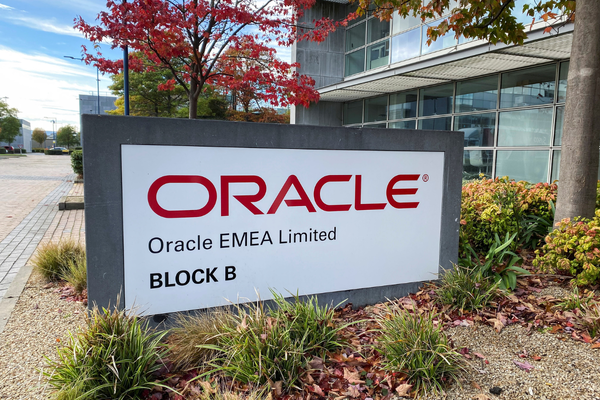How local governments can prepare for the unexpected
Being able to withstand and respond to a disaster is crucial for local governments – and that means building strong relationships with trusted suppliers

Local governments face a wide range of challenges. Not only must they ensure cost efficiency when costs are increasing, they must also demonstrate they are operating responsibly, both in terms of their sustainability mandates and supporting local businesses.
According to Amazon Business’s State of Procurement 2025 report, 61% of organizations have mandates to buy from suppliers that follow sustainable practices, 46% have criteria mandating the use of local businesses and 44% are under pressure to use small businesses.
These pressures are particularly felt in the local government sector, where the expectation to demonstrate such values and lead by example is felt more keenly, and public scrutiny is inevitably higher.
At the same time, though, they must be prepared for the unexpected. One in three (33%) of senior leaders say they worry about supply chain disruptions or delays, reflecting the concern many feel about the potential for global political and economic tensions to spill into the disruption of trade routes.
It’s not just a case of local governments continuing to function should a crisis hit, either. Such government bodies are often the first to respond to natural disasters or public health crises, and have a responsibility to help communities, citizens, and vulnerable people stay safe and recover from any incident.
The potential for vital supplies to be caught up in supply chain disruption is significant, and local governments cannot afford to find themselves without access to items should shortages occur. Vital equipment includes face masks, personal protective equipment (PPE), uniforms and cleaning supplies, which can be essential during a natural disaster, terrorist incident or accident.
It’s no surprise, then, that becoming more agile or resilient is a priority for one in four (24%) senior leaders, or that 12% of decision-makers see ensuring greater visibility into supplier inventory as a challenge, an increase of 5% from the previous year.
For those working in local government, traditional procurement processes are no longer fit for purpose when it comes to ensuring jurisdictions can respond to specific needs quickly. Lengthy tender processes and long lead times, often as a result of using multiple suppliers from a long way away, means local authorities risk being exposed to supply shortages when they are most needed.
One option when it comes to being prepared is to partner with Amazon Business, which can facilitate access to more than 2,300 disaster supply products through its curated catalogue or allow departments to create their own.
Not only does this provide access to discounted rates, with average savings of around 15%, but it also provides peace of mind through Amazon’s trusted delivery network. Authorities can also choose to partner with particular suppliers, such as those from a local area or that meet company mandates around responsible sourcing. Consolidating buying through a single partner also makes for accurate spend information, allowing departments to track exactly what they are spending and with which suppliers.
Annie Perez is the chief procurement officer and Emergency Operations Center logistics chief for the City of Miami. With hurricanes a regular occurrence each year, her team plans ahead to make sure it has the provisions required to cope.
As part of the emergency management plan, the procurement team headed out into the local community to see how to help the city’s most vulnerable people, typically the elderly community. The team’s research identified several vital items including a NOAA weather radio, a flashlight that older people could easily handle, a first-aid kit and a reusable water bottle.
From the start, the City of Miami worked with Amazon Business to source items. “Amazon was able to come in and get us what we needed,” she says. “It was amazing to see the response of the elderly community. They were so gracious, and some of them even cried and said that no one had ever done anything like that for them.”
The procurement function also offers its internal users a punchout site where they can purchase items through Amazon Business in the same way they would using their personal accounts. She says that having clear insight into stock availability and lead times is particularly helpful as this means people can ensure they will have what they need ahead of any predicted event.
Perez’s advice for other local government jurisdictions is to identify what they require well in advance of any likely incident or season. “You don’t want to wait until the last minute when everybody’s scrambling to try to get supplies,” she says. “Hurricane season here starts on June 1st, so we usually start looking in January or February.”
“Include Amazon in that preparation, because a lot of the items you can get through it – and for larger quantity purchases you can use the quoting feature on Amazon to attain better pricing.”
Perez also recommends that jurisdictions develop a strategic procurement plan for emergency management, containing a list of critical essential goods and services vendors. Working with Amazon, the organisation has held meet-and-greet events with suppliers it might need in an emergency. “If the supply chain gets destroyed, what are you going to do next?” she asks. “That’s where Amazon could be very helpful.”
To find out more about how Amazon could help your local government better prepare for disasters or unexpected events, visit business.amazon.com/en/industries/government

Business Reporter Team
Most Viewed
Winston House, 3rd Floor, Units 306-309, 2-4 Dollis Park, London, N3 1HF
23-29 Hendon Lane, London, N3 1RT
020 8349 4363
© 2025, Lyonsdown Limited. Business Reporter® is a registered trademark of Lyonsdown Ltd. VAT registration number: 830519543





